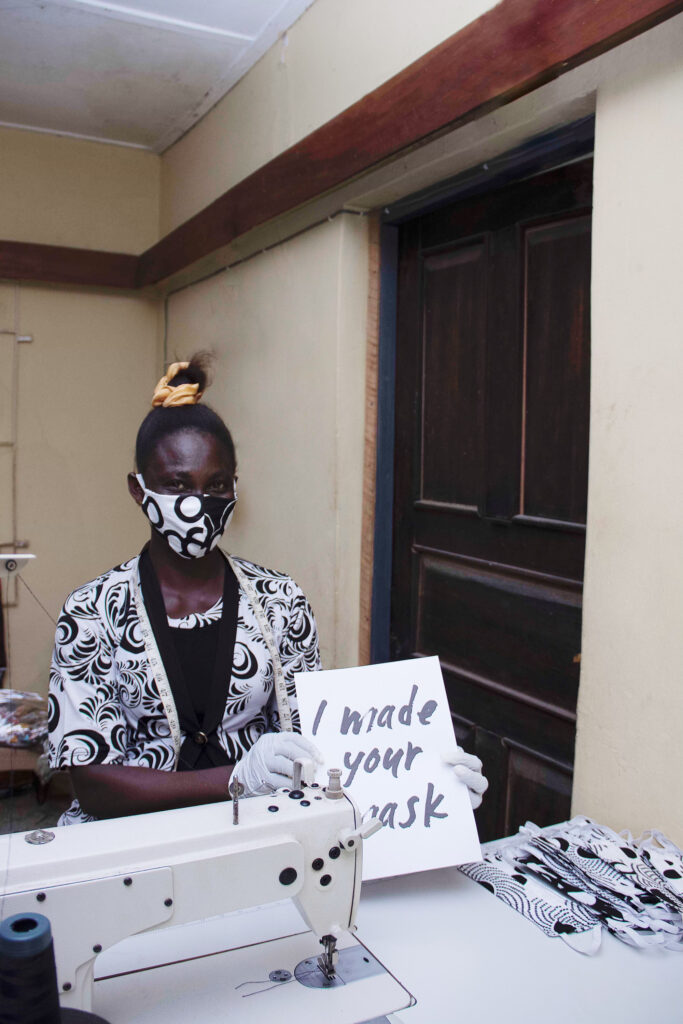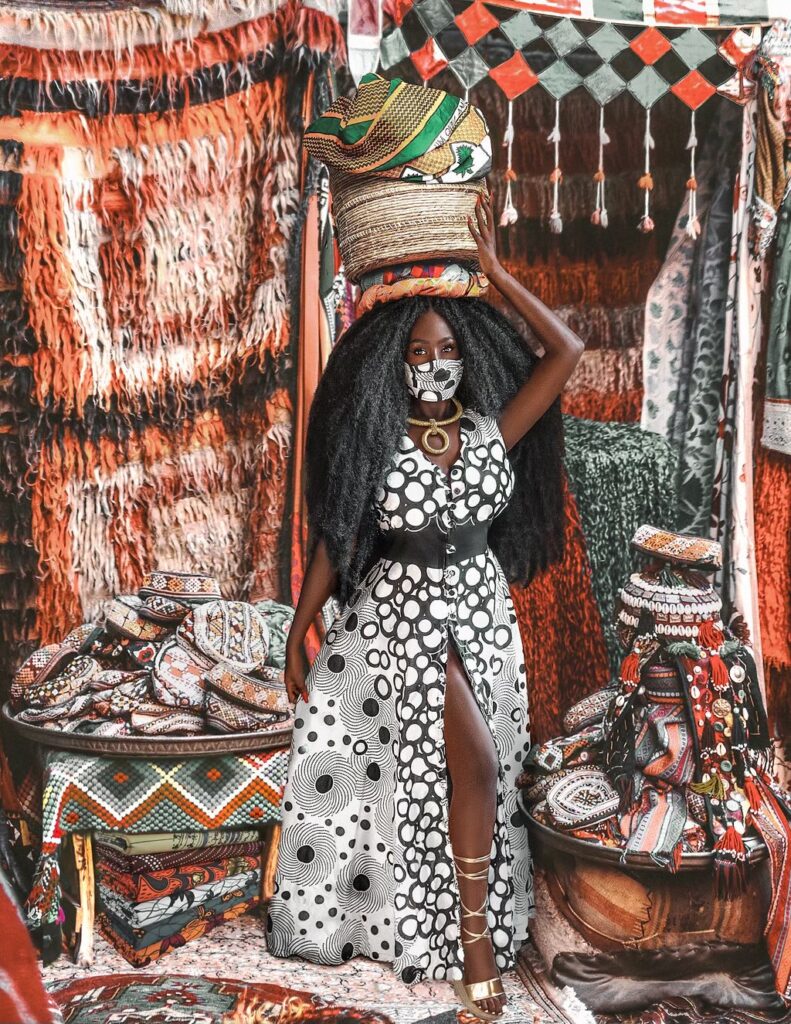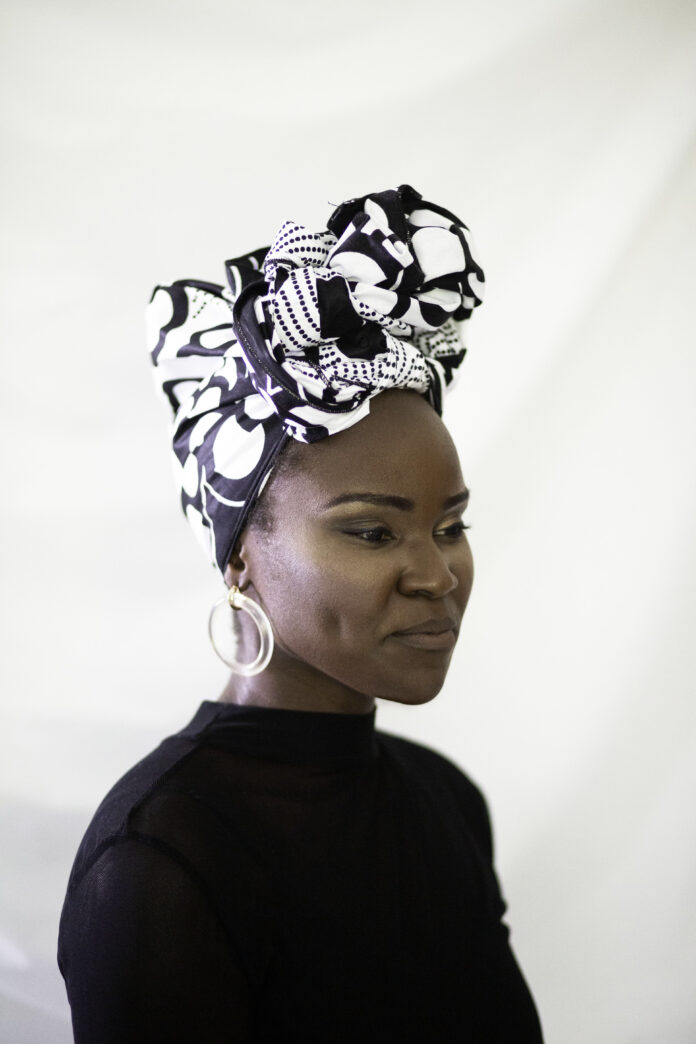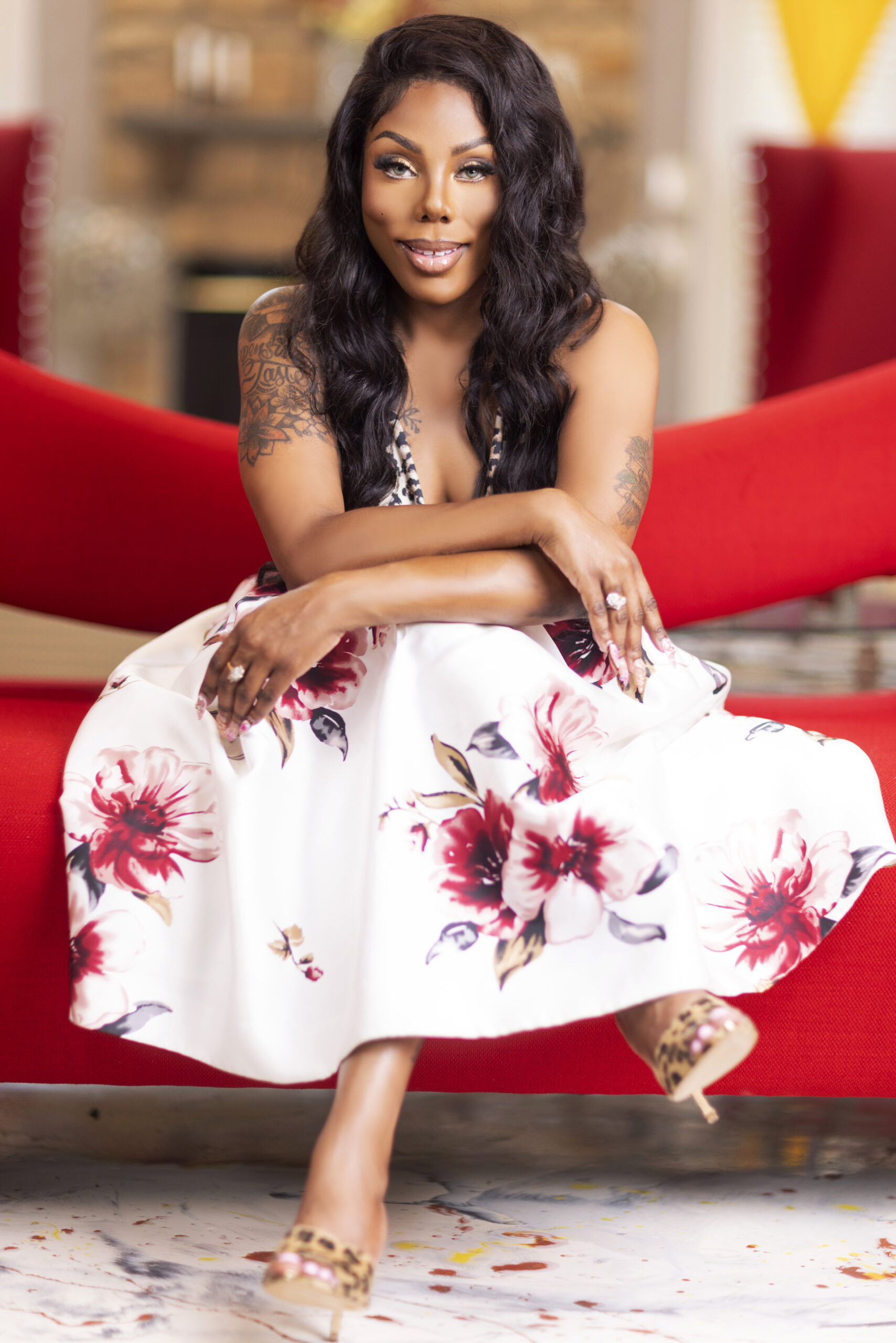( ENSPIRE She Did That ) Focused on Ethical Production and Job Creation in Her Hometown, the Nigerian-Born Designer Is Determined To Make a Difference
ENSPIRE Contributor: Adriana Georgiades
When Nigerian-born fashion designer Sophia Danner-Okotie founded her ethical womenswear brand Besida, she had a two-fold mission: to provide ready-to-wear clothing in America that expressed her African identity and to be a part of the solution to the unemployment crisis in Nigeria. Recognized for her contribution towards sustainable fashion and uplifting her local community, the trailblazer was recently named as an honoree in the prestigious Forbes 30 under 30 List.
Known for its vibrant African textiles, bold colors, and unique designs, Besida reflects Danner-Okotie’s traditional Nigerian heritage with a modern twist. The garments are ethically made by five full-time employees in the designer’s hometown, Benin City. This not only preserves the authenticity of the garments but creates employment opportunities for talented local tailors who are given livable wages and safe, comfortable working conditions. “The artisan workforce in Nigeria is severely underpaid, and quality jobs are exceedingly difficult to find in the country. However, tailors in Nigeria are talented and can quickly adapt to new practices,” says Besida. “I saw Besida as an opportunity to fill in the gap. I could easily manufacture in China and Turkey, but I chose to put in a little more effort and provide jobs for the community that raised me.”

Danner-Okotie has remained steadfast in her commitment, despite the challenges of manufacturing in Nigeria. There are no existing systems equipped to manufacture high-quality products in bulk, and the country suffers from regular blackouts that can last up to three days. To combat these obstacles, the designer opened up her own workshop studio for Besida’s tailors and plans to make it completely solar-powered by next year. In addition to reducing Besida’s energy footprint, Danner-Okotie is also focused on minimizing waste, launching the brand’s “Scraps to Style” campaign which turns fabric scraps from past collections into scrunchies or headbands.
Surprisingly, Danner-Okotie has no formal training in fashion design and is actually a seasoned journalist. As a young girl growing up in Nigeria, she remembers visiting local tailors to shop and design her own custom garments. Decades later, on a two-week trip to Nigeria, she did the same thing, launching Besida with a small collection of about 20 pieces in 2015. For the Nigerian-born designer, authenticity is key. “It is not okay to incorporate fashion from other cultures without giving the people of that culture credit or even finding ways to give back to the original creators,” she says. “I compare it to plagiarism. It is inappropriate to take another writer’s work and claim it as yours. Why don’t we hold fashion at that same standard?”

Looking forward, Besida’s future looks bright. The brand was recently awarded a $20,000 grant from LISC (Local Initiatives Support Corp) underwritten by Lowe’s, which Danner-Okotie will use to boost Besida’s online advertising and marketing strategies. And according to the designer, the recognition by Forbes is validation that she is on the right path. “I know Besida’s worth and potential, and although our growth has been slow, I am elated to know that Forbes can honor our uniqueness, progress, and potential for growth.”
Related Articles: African American Designer Prep Curry Makes History with Banana Republic, Changing Fashion Industry One Ethical Face Mask At A Time, African Luxury Designer Alain Fagnidi Debuts ‘The Vanquisher’s Collection’ in NYC










